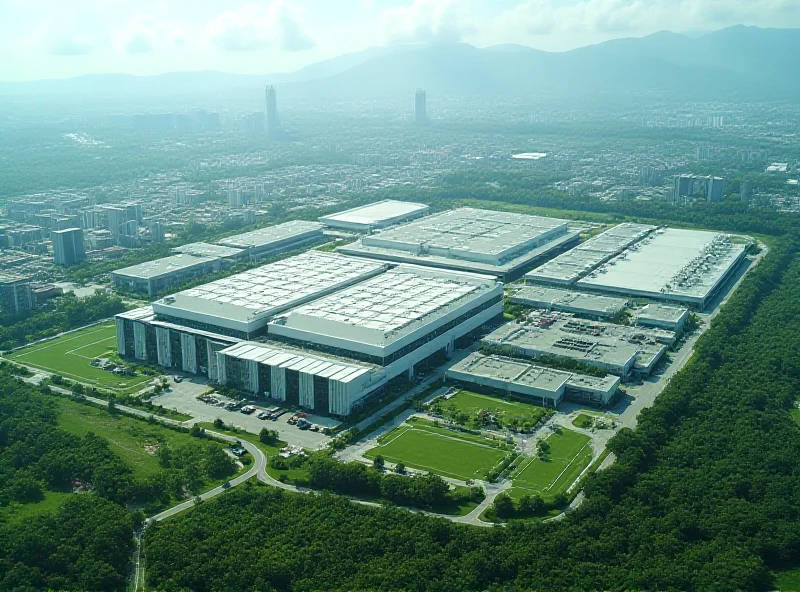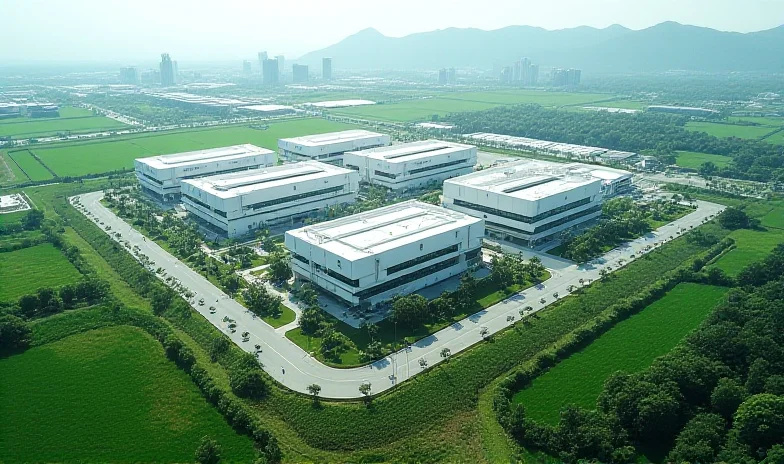The intersection of geopolitics and business is becoming increasingly apparent, with recent developments showcasing how international relations are influencing major deals and strategic decisions. From promises concerning advanced technology to shifts in port ownership, the global landscape is playing a significant role.
Taiwan Assures on Tech Transfer
Amidst a new $100 billion deal between TSMC and Donald Trump, Taiwan's government has assured that its most advanced semiconductor technology will not be transferred to the United States. This promise comes in response to concerns that the deal could undermine Taiwan's national security. The government has stated that the agreement will undergo thorough assessments to ensure it aligns with the country's interests and protects investors. This careful approach underscores the delicate balance between economic opportunity and national security concerns.

“The deal must still go through government assessments, which would take into account the interests of the country as well as investors," a government spokesperson stated, highlighting the importance of a balanced approach.
Hutchison's Port Exit: A Geopolitical Move
Li Ka-shing's company, Hutchison, has exited its overseas dock holdings, including facilities in Panama. This decision is largely attributed to increased scrutiny from the United States and the potential for legal challenges in American courts. Sources indicate that remaining invested in these overseas docks would have subjected the company to greater US regulatory oversight. This move highlights how geopolitical considerations are forcing businesses to reassess their global strategies and risk profiles.
This decision underscores how geopolitical considerations are forcing businesses to reassess their global strategies and risk profiles.
Wall Street Reacts to Easing Trade Tensions
In other news, Wall Street experienced a positive surge following reports that Donald Trump might delay auto tariffs on Canada and Mexico by a month. This potential easing of trade tensions provided a boost to the stock market, reflecting investor optimism. The markets are keenly observing these developments, as trade policies continue to significantly impact economic outlooks. The possibility of delayed tariffs suggests a potential de-escalation in trade disputes, which is seen as a positive sign for global economic stability.

Cyprus and the US Strengthen Ties
The United States and Cyprus are strengthening their relationship, with new agreements facilitating Cyprus's purchase of American weapons. This move is viewed as part of Cyprus's efforts to distance itself from Russian influence. The strategic island nation is now able to more easily acquire US military equipment, marking a significant shift in its geopolitical alignment.

Automakers, too, may be looking to capitalize on a pause in tariffs by building up inventories, a move that reflects the ongoing uncertainty in the global trade environment.
These interconnected events underscore the increasing importance of understanding geopolitical factors in the world of business. Companies and investors alike must navigate a complex landscape where international relations can significantly impact strategic decisions and financial outcomes.
